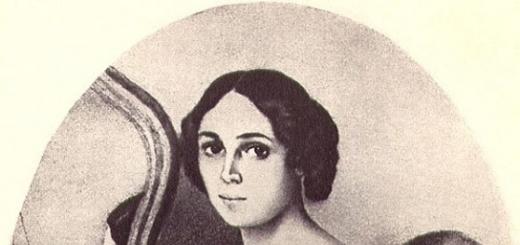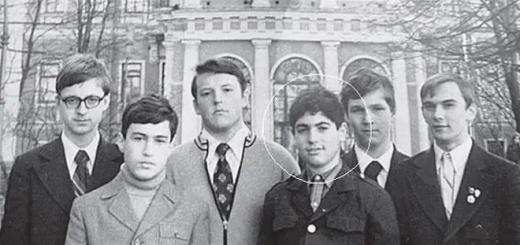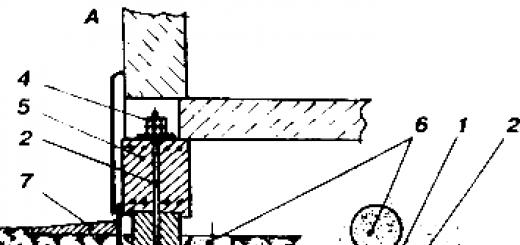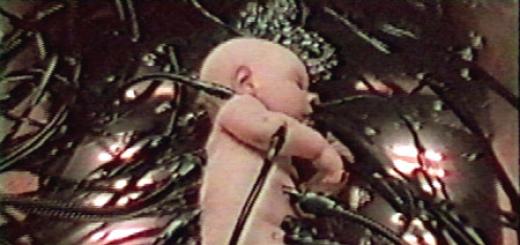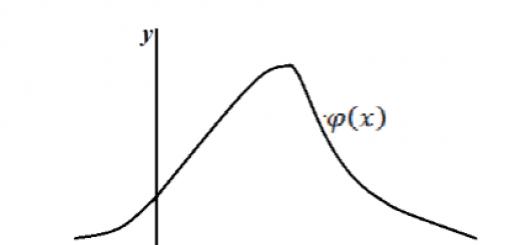Tyutchev's love lyrics
Plan
1. Introduction
2.Muses of the poet
3.Features
Tyutchev's love lyrics significantly enriched Russian literature. A fan of “pure” art in life was an ordinary person who was prone to mistakes and hobbies. Tyutchev had serious affairs with several women.
The poet was married twice, but his family and children could not force him to give up his secret “civil” life. Someone may consider the two main misfortunes of Tyutchev a divine punishment. His first wife died a tragic death.
The poet's most serious romance with L. Denisyeva also ended with the death of his beloved at an early age. These losses introduced motifs of sadness and longing into the poet’s love lyrics.
The poet experienced his first strong love for Amalia von Lerchenfeld during his stay in Munich. Tyutchev proposed, but received a decisive refusal from the girl’s parents. During Tyutchev's short departure from Munich, the family married Amalia. At the beginning of his courtship, the poet dedicated the poem “Your sweet gaze, full of innocent passion...” to Amalia, which is a declaration of love.
Much later, he recalled this in his work “I Remember the Golden Time...”. The poem “K.” is also dedicated to Amalia. B.”, which became a widely popular romance “I Met You...”. Tyutchev's first wife was a young widow with three children, Eleanor Peterson. Eleanor was a fragile woman with a sensitive soul. She was very upset by the news of her husband’s betrayal with Ernestina Dernberg. Nervous fatigue had a significant impact on her health. An elementary cold dealt the final blow to the poor woman. Eleanor left the poet two more daughters and a son.
There are two known works of the poet, posthumously dedicated to Eleanor: “I am still languishing with the anguish of desires...” and “In the hours when it happens...”. Soon after the death of his wife, Tyutchev married his longtime lover, Ernestina Dernberg. The happy marriage lasted for a long time, until Tyutchev experienced a new hobby. Ernestina knew very well about her husband’s betrayal, but forgave him for the sake of the children. Love for Ernestine became a rich source of inspiration for the poet. Such beautiful poems as “I love your eyes, my friend...”, “She was sitting on the floor...”, etc. are dedicated to her.
The most popular poems by Tyutchev were works dedicated to the poet’s latest hobby - E. A. Denisyeva. She was much younger than Tyutchev, but she loved him with incredible self-sacrifice. They despised her and openly laughed at her mistress's position. Such a life became the cause of rapidly progressing consumption. Denisyeva died at the age of 40. The result of the novel was the “Denisevsky cycle” of poems, including “Oh, how murderously we love,” “More than once have you heard a confession...”, “There is not a day when the soul does not ache...” and others. Shortly before his death, Tyutchev summed up his love relationship by writing the poem “Everything was taken from me by the executing God...”. He dedicated it to his most faithful friend in life, Ernestine Dernberg.
The main distinguishing feature of Tyutchev’s works about love was their special sincerity. The poet was an “incorrigible” romantic. His poems are very chaste, they do not mention the rough everyday trifles. Tyutchev worships the magical feeling of love. He compares his relationships with women to worshiping a deity. Dedications to a loved one are very pure and full of solemn phrases. Tragic motives appear in the Denisevsky cycle.
“Illegal” love left its mark on Tyutchev’s work. He described what he himself experienced. A great feeling was combined with hopelessness, romance - with misunderstanding and rejection by society, tender relationships - with the impossibility of being together. Tyutchev's love lyrics became an example of Russian poetic classics. It reflected the most intimate movements of the human soul, both in happiness and in suffering.
Fyodor Tyutchev and Elena Denisyeva.
The Denisyevsky cycle is called the most lyrical and piercing in the work of Fyodor Tyutchev. The addressee of these poems is the muse and last love of the poet Elena Denisyeva. For the sake of love for Tyutchev, she sacrificed everything: her social status, the location of her family, the respect of others. Their relationship lasted for 14 long years. They were sweet and painful at the same time. 
Portrait of Elena Alexandrovna Deniseva.
Elena Aleksandrovna Denisyeva came from an old but impoverished noble family. Her mother died when Elena was still a child. After some time, the father married again, but the stepmother did not like the rebellious stepdaughter too much. Therefore, the girl was urgently sent to St. Petersburg to be raised by her father’s sister Anna Dmitrievna Denisyeva. She was in the position of inspector at the Smolny Institute. This position allowed the aunt to arrange for her niece to study at the Institute of Noble Maidens.
Anna Dmitrievna, usually strict with her students, doted on Elena and spoiled her. She bought her niece clothes and took her out into the world. Both older socialites and ardent young men paid attention to the young beauty with ideal manners. 
Elena Denisyeva is the last love of Fyodor Tyutchev.
Years of study at Smolny allowed Elena Alexandrovna to master the art of court etiquette, speak German and French without an accent, and acquire other skills necessary for students. A completely successful arrangement of her fate awaited the girl: after graduating from the Smolny Institute, she was supposed to become a maid of honor at the imperial court, if not for the big scandal that broke out right before Denisyeva’s graduation. 
Ernestina Tyutcheva, wife of Fyodor Tyutchev. F. Durk, 1840
The daughters of Fyodor Ivanovich Tyutchev studied in the same class with Elena Alexandrovna, so Denisyeva was a frequent guest in his house. The poet’s daughters came with a friend to tea parties at home. Gradually, Tyutchev began to pay more attention to the girl than etiquette required. The poet's wife saw how he was caring for the young beauty, but did not attach much importance to it. Ernestina Fedorovna, remembering her husband’s past intrigues with aristocratic women, considered that his attachment to the orphan girl did not pose any threat. 
Elena Denisyeva with her daughter.
In March 1851, just before his release from Smolny and subsequent assignment to future positions, an incredible scandal broke out. It turned out that Denisyev’s pupil was pregnant and would soon give birth. The director spied Elena Alexandrovna and found out that she had secretly met with Fyodor Tyutchev in a rented apartment not far from the Smolny Institute. Denisyeva gave birth in May of the same year.
The aunt was immediately expelled from her place of work, although she was awarded a generous pension, and almost everyone turned their backs on Elena. Her father cursed her and forbade her relatives to communicate with her daughter. Only the aunt supported her niece and took her to live with her. 
Fyodor Ivanovich Tyutchev is a Russian poet.
Then Denisyeva was 25 years old, and Tyutchev was 47. For him, the young and stately Elena Alexandrovna was a muse, an all-consuming passion. Their painful relationship lasted fourteen years.
Tyutchev did not intend to dissolve the official marriage, but he was also unable to part with his beloved. They had three children. Elena Alexandrovna forgave Tyutchev for her infrequent visits and for living in two families. When the children asked why dad was practically never at home, the woman lied that he had too much work.
Only a few weeks a year abroad, Elena Alexandrovna was truly happy. After all, no one there knew her story, and when she checked into the hotel, she resolutely called herself Madame Tyutcheva. 
Elena Denisyeva is the muse and lover of the poet Fyodor Tyutchev.
In Russia, Denisyeva again had to put up with the position of half-wife, half-mistress. She understood perfectly well that she was engaged in self-flagellation, but she could not help herself, because she loved the poet too much.
And yet, sometimes this submissive woman could not stand it and showed her temper. When she announced that she was pregnant for the third time, Fyodor Ivanovich tried to dissuade her from giving birth. Then Denisyeva flew into a rage, grabbed the figurine from the table and threw it at Tyutchev with all her might. She didn't hit him, but only knocked off the corner of the fireplace.
Their painful relationship would have continued, but in 1864 Elena Denisyeva died suddenly from tuberculosis. Tyutchev was inconsolable.
All day she lay in oblivion -
And shadows covered it all -
The warm summer rain was pouring - its streams
The leaves sounded cheerful.
And slowly she came to her senses -
And I started listening to the noise,
And I listened for a long time - captivated,
Immersed in conscious thought...
And so, as if talking to myself,
She said consciously:
(I was with her, killed but alive)
“Oh, how I loved all this!”
You loved, and the way you love -
t, no one has ever succeeded -
Oh Lord!.. and survive this...
And my heart didn't break into pieces... 
Still from the film “Tyutchev’s Last Love” (2003)
After the death of his beloved, Tyutchev wrote to his friend: “...The memory of her is that feeling of hunger in the hungry, insatiably hungry. I can’t live, my friend Alexander Ivanovich, I can’t live... The wound festers, it doesn’t heal. Be it cowardice , be it powerlessness, I don’t care. Only with her and for her was I a person, only in her love, her boundless love for me, did I recognize myself... Now I am something meaninglessly living, some kind of living, painful nonentity It may also be that in some years nature in a person loses its healing power, that life loses the ability to be reborn, to renew itself. All this can happen; but believe me, my friend Alexander Ivanovich, he is only able to assess my situation, whoever One thousand and one had a terrible fate - to live for fourteen years in a row, every hour, every minute, with such love as her love, and to survive it.
[…] I’m ready to accuse myself of ingratitude, of insensitivity, but I can’t lie: it wasn’t easier for a minute as soon as consciousness returned. All these opium treatments dull the pain for a minute, but that’s all. The effect of opium will wear off, and the pain will still be the same..."
The trees bare their shoulders, the yellow ball hides the masks, Whoever says that time heals has never known love...
Tyutchev Fedor
Whatever life teaches us,
But the heart believes in miracles...
Tyutchev Fedor
This day, I remember, for me
Was on the morning of life's day:
She stood silently in front of me.
Her chest heaved like a wave,
Cheeks reddened like the dawn,
The blushing and grief are getting hotter and hotter!
And suddenly, like the young sun,
Golden declaration of love
It burst out of her chest...
And I saw a new world!..
Tyutchev Fedor
But all charms are short-lived; they are not allowed to visit us.
Tyutchev Fedor
I love your eyes, my friend,
With their fiery-wonderful play,
When you suddenly lift them up
And, like lightning from heaven,
Take a quick look around the whole circle...
But there is a stronger charm:
Eyes downcast
In moments of passionate kissing,
And through lowered eyelashes
A gloomy, dim fire of desire.
Tyutchev Fedor
There is more than one memory here,
Here life spoke again, -
And you have the same charm,
And that love is in my soul!..
Tyutchev Fedor
Your shrine will not be violated
The poet's clean hand
But inadvertently life will strangle
Or it will carry you beyond the clouds.
Tyutchev Fedor
Oh, how murderously we love,
As in the violent blindness of passions
We are most likely to destroy,
What is dear to our hearts!
Tyutchev Fedor
I still languish with the longing of desires,
I still strive for you with my soul -
And in the twilight of memories
I still catch your image...
Your sweet image, unforgettable,
He is in front of me everywhere, always,
Unattainable, unchangeable,
Like a star in the sky at night...
Tyutchev Fedor
Love, love - says the legend -
Union of the soul with the dear soul -
Their union, combination,
And their fatal merger,
And... the fatal duel...
Tyutchev Fedor
Let the blood in your veins run low,
But there is no shortage of tenderness in the heart...
O you, last love!
You are both bliss and hopelessness.
Tyutchev Fedor
You loved and as you love,
No, no one has ever succeeded
Oh my God! And survive it
And my heart didn’t break into pieces!
Tyutchev Fedor
So sweet and gracious
Airy and light
to my soul a hundredfold
Your love was there.
Tyutchev Fedor
There is a high meaning in separation:
No matter how much you love, even one day, even a century,
Love is a dream, and a dream is one moment,
And whether it’s early or late to wake up,
And man must finally wake up...
Tyutchev Fedor
How long ago, proud of my victory,
You said: she is mine...
A year has not passed - ask and find out,
What was left of her?
Where did the roses go?
The smile of the lips and the sparkle of the eyes?
Everything was scorched, tears burned out
With its flammable moisture.
Tyutchev Fedor
Not what you think, nature:
Not a cast, not a soulless face -
She has a soul, she has freedom,
There is Love in it, there is language in it.
Tyutchev Fedor
Be silent, hide and hide
And your feelings and dreams -
Let it be in the depths of your soul
They get up and come in.
Tyutchev Fedor
She was sitting on the floor
And I sorted through piles of letters,
And, like cooled ash,
She picked them up and threw them away.
I took familiar sheets
And I looked at them so wonderfully,
How souls look from above
The body thrown on them...
Oh, how much life there was here,
Irreversibly experienced!
Oh, how many sad moments
Love and joy killed!..
I stood silently on the sidelines
And I was ready to fall on my knees, -
And I was terribly sad
As from the inherent cute shadow.
Tyutchev Fedor
More than once you have heard the confession:
"I'm not worth your love."
Let her be my creation -
But how poor I am in front of her...
Before your love
It hurts me to remember myself -
I stand, silent, in awe
And I bow to you...
When, sometimes, so tenderly,
With such faith and prayer
You involuntarily bend your knee
Before the dear cradle,
Where she sleeps - your birth -
Your nameless cherub, -
You too understand my humility
Before your loving heart.
Tyutchev Fedor
I met you - and everything is gone
In the obsolete heart came to life;
I remembered the golden time -
And my heart felt so warm...
Like late autumn sometimes
There are days, there are times,
When suddenly it starts to feel like spring
And something will stir within us, -
So, all covered in perfume
Those years of spiritual fullness,
With a long-forgotten rapture
I look at the cute features...
Like after a century of separation,
I look at you as if in a dream, -
And now the sounds became louder,
Not silent in me...
There is more than one memory here,
Here life spoke again, -
And we have the same charm,
And the same love is in my soul!...
Tyutchev Fedor
Fyodor Tyutchev lived among three families"Oh, how murderously we love..."
Love, love - says the legend -
Union of the soul with the dear soul -
Their connection, combination,
And their fatal merger.
And... the fatal duel...
And which one is more tender?
In the unequal struggle of two hearts,
The more inevitable and more certain,
Loving, suffering, sadly melting,
It will finally wear out... 
There is probably no person whose native language is Russian, who would not know the name Tyutchev, would not have heard him “I love the thunderstorm at the beginning of May”, “Winter is angry in vain, its time has passed”, “We are not given to predict how our word will respond " and, of course, the textbook "You can't understand Russia with your mind..." But perhaps not everyone knows that Tyutchev spent more than twenty years of his life in Germany, that it was here that he formed as a poet, that many of his masterpieces were written here and that the most famous, probably, Russian romance “I met you - and everything that was past came to life in an obsolete heart...” is dedicated to a German woman. 
His lyrics leave no one indifferent. An unsurpassed master of the poetic word, Fyodor Tyutchev knew how to love without reserve. He didn’t understand the word “treason” and was sincerely surprised, why couldn’t he love two or three women at once if he couldn’t live without them? And 90 years ago there was a meeting in his life that gave life to an immortal poem.
I met you -
and everything of the past
In an obsolete heart
came to life...
I remembered the golden time -
And my heart felt so warm...
Who doesn’t know these Tyutchev lines that make hearts flutter? They, just like Pushkin’s “I remember a wonderful moment...” - from the depths of the soul, are close to everyone... These poems might never have appeared if not for that meeting that happened almost 90 years ago.
...Fyodor Tyutchev, a graduate of Moscow University, was enlisted in the State Collegium of Foreign Affairs at the beginning of 1822. He goes to Munich, to the post of supernumerary official of the Russian diplomatic mission in Bavaria.
It was here, abroad, that his personal life began, full of passions and sorrows; here he began to create amazing poems dedicated to his lovers. Here he meets his first love, marries for the first time, experiences the death of his first wife, marries a second time, experiencing ardent feelings. 
Amalia von Krüdener
At one of the social events, a 19-year-old young man meets the charming Amalia Lerchenfeld. She is the natural daughter of the Prussian King Frederick William III. The beauty amazed him with her education and depth of soul, despite the fact that she was only 14 years old. Tyutchev was bewitched by her. They exchanged watch chains as a sign of eternal love. But the parents of the young beauty found her another groom - Tyutchev’s colleague Baron Krudener.  center>
center>
...Tyutchev is 66 years old, and Amalia is 61. Fyodor Ivanovich is the chamberlain of the court, chairman of the censorship committee at the Ministry of Foreign Affairs. He came to Carlsbad for treatment. Among the Russian and European nobility vacationing here, he suddenly saw her. And again my heart began to flutter. They wandered the streets of Carlsbad together, remembering their first meeting at the ball, dreams that were not destined to come true. After one of these walks, the poet wrote down a poem. These words seemed to be dictated to him from above: “I met you...” 
And three years later, paralyzed, he was dying heavily. One day, opening his eyes, he suddenly saw his Amalia at his bedside. A tear slowly rolled down his cheek. Her hand was in his hand. She was crying too.
In her face, the past of my best years came to give me a farewell kiss,” he dictated a letter to his daughter to the nurse, telling about this meeting. This was one of the last letters. A whole life passed between these meetings. Amalia was his first love, beautiful, romantic, but hardly the strongest.
Amalia outlived Tyutchev by 15 years. He dedicated poems to her: “I remember the golden time...”, “Your sweet gaze”, “I met”, “I knew her back then...”.
... Ernestina Pfeffel (Dernberg in her first marriage) and Elena Denisyeva. One is a wife, the other is a mistress. The first is a mature woman, and the second is very young. And both were so dear to him that parting with each of them was tantamount to death. Long years of suffering from an acute sense of guilt in front of both. He dedicated a lot of love lyrics to both of them. From these verses it is clear: he loved each of the women to the utmost of his soul. This life of rupture lasted for 14 long years. Carrying Lelya is his joy and pain.
Ernestine appeared in his heart when he was in his first marriage - with Eleanor. She is a little older, but more experienced, and has four children from her first husband. “Never has a single person loved another as she loves me,” Tyutchev wrote about Eleanor to his parents. 
Eleanor, Countess Bothmer (1800-1838), in Peterson's first marriage, close friend, beloved woman, wife of the poet Fyodor Ivanovich Tyutchev.
I still languish with the longing of desires,
I still strive for you with my soul -
And in the twilight of memories
I still catch your image...
Your sweet image, unforgettable,
He is in front of me everywhere, always,
Unattainable, unchangeable,
Like a star in the sky at night... 
Eleanor gave him three daughters. Their serene marriage did not last long. At the ball, the young poet meets Ernestine Dörnberg, one of the first beauties of Munich. Ernestina's husband, dying, instructed Tyutchev to take care of the young widow. The poet fulfilled his will in full.
He dedicated many poems to Ernestine, here is one of them: “I love your eyes, my friend...”. 
Soon, well-wishers reported to Eleanor about their secret meetings. In a fit of despair, the woman grabbed a dagger and inflicted several wounds on herself in the chest. The doctors managed to pump the poor thing out.
This love scandal almost ruined the career of the young diplomat. Tyutchev is sent to Turin - out of harm's way. He said goodbye forever to his Ernestina. But it happened differently. Two years later, Eleanor died. Overnight the poet turned gray with grief. And even ten years after her death, he wrote in a poem dedicated to her: “I am still tormented by the anguish of desires...” And a year after the death of his adored wife, he married Ernestina.
Baroness Ernestina Pfeffel (1810-1894), in her first marriage Baroness Dernberg, Tyutchev’s second wife
I love your eyes, my friend,
With their fiery-wonderful play,
When you suddenly lift them up
And, like lightning from heaven,
Take a quick look around the whole circle... 
At the end of 1844, Tyutchev with his wife and two children from his second marriage moved from Munich to St. Petersburg. His daughters from his first marriage, Daria and Ekaterina, studied at the Smolny Institute. Elena Denisyeva, a girl from an impoverished noble family, also studied there. She was 23 years younger than the poet. 
Elena Aleksandrovna Denisyeva (1826-1864), the poet’s last love
Denisyeva, rejected by “society” and having gone through many trials, died early.
Their secret meetings began in 1851. Elena's father, having learned about this shameful relationship, renounced her. The doors of all decent houses were closed for the poor thing. They soon had a daughter. “I have nothing to hide, and there is no need to hide from anyone: I am more his wife than his ex-wives,” she wrote, “and no one in the world has ever loved and appreciated him as much as I love and appreciate him, never no one understood him the way I understand him..."
What about Ernestine? She preferred to pretend that she knew nothing about her husband’s secret life. She often went abroad, spending most of her time with the children on the Tyutchev family estate in Ovstug, while her husband lived with Denisyeva in Moscow and traveled with her around Europe. The lovers had three children. He idolized her, considering her his last love, but he could not imagine his existence without Ernestine. However, their relationship with Ernestina in those years was limited to correspondence only.
Oh, how murderously we love,
We are most likely to destroy,
What is dear to our hearts!
How long ago, proud of my victory,
You said: she is mine...
A year has not passed - ask and find out,
What was left of her?
Where did the roses go?
The smile of the lips and the sparkle of the eyes?
Everything was scorched, tears burned out
With its flammable moisture.
Do you remember, when you met,
At the first fatal meeting,
Her magical gaze and speech,
And the laughter of a child is alive?
So what now? And where is all this?
And how long was the dream?
Alas, like northern summer,
He was a passing guest!
Fate's terrible sentence
Your love was for her
And undeserved shame
She laid down her life!
A life of renunciation, a life of suffering!
In her spiritual depths
She was left with memories...
But they changed them too.
And on earth she felt wild,
The charm is gone...
The crowd surged and trampled into the mud
What bloomed in her soul.
And what about the long torment?
How did she manage to save the ashes?
Pain, the evil pain of bitterness,
Pain without joy and without tears!
Oh, how murderously we love,
As in the violent blindness of passions
We are most likely to destroy,
What is dear to our hearts! 
He wrote these lines about Elena. She fell ill with consumption and died after giving birth to their youngest child, Fedya. Tyutchev blames himself for her death, and repentance does not leave him. On the anniversary of her death, he will write a poem where he again recalls his love for Denisyeva: “Today, my friend, 15 years have passed...”
Daughter Lelya did not live long; she, like her mother, also died of consumption. The next day, his and Lena’s son died from the same disease.
The third child from Denisyeva was raised by Ernestina. And 62-year-old Tyutchev, trying to heal a mental wound, started an affair with a friend of his late mistress, Elena Bogdanova. His relatives learned about the existence of another common-law wife of the poet only from his will. He brought Hortense Lapp with him from Germany three years before he met Denisieva. Tyutchev bequeathed his general's pension to her and their common sons, which by law was due to the widow, Ernestina.
This is what I wanted to tell you today about the poet’s lovers, who became his muses and inspired him to create wonderful poems. We were convinced that the love lyrics reflected his personal life, full of passions and tragedies.
Now it is fashionable to talk about love. But here is an example of the love of a great man, Tyutchev. I would like to know your opinion, dear readers, about the life and love of this genius of Russian literature. Would you like your loved one to treat you the way Tyutchev treated his passions?

